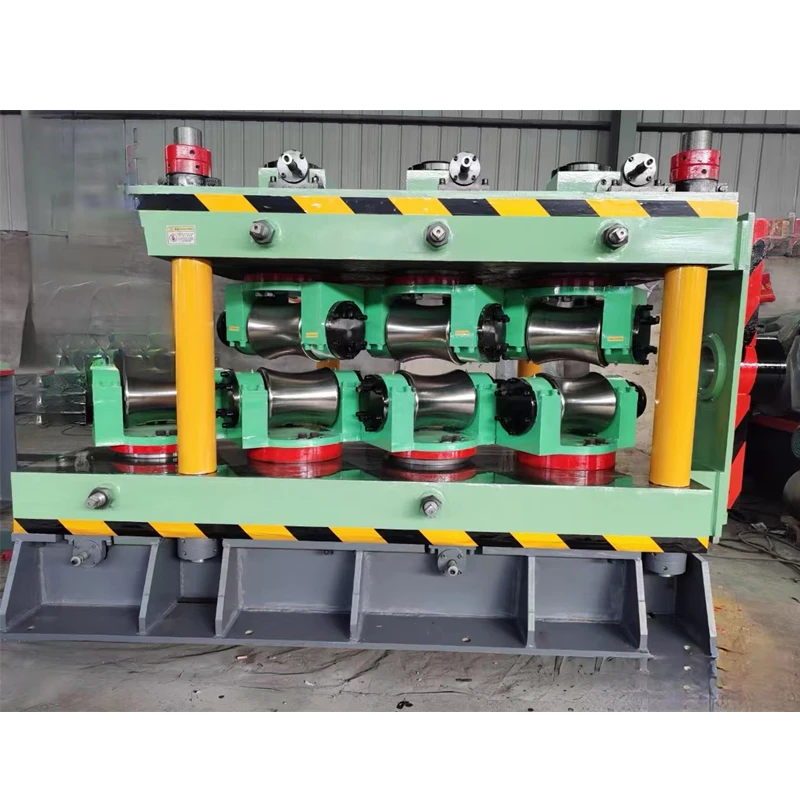Hydraulic Line Steel Tubing for Enhanced Performance and Durability in Fluid Systems
Steel Pipe for Hydraulic Lines An Essential Component in Modern Engineering
The demand for efficient and reliable systems in various industries has led to the increased use of hydraulic lines. These systems rely heavily on steel pipes, which offer unparalleled strength, durability, and resistance to high pressures. In this article, we will delve into the significance of steel pipes in hydraulic lines, exploring their properties, applications, and advantages.
Properties of Steel Pipes
Steel pipes are engineered to meet specific requirements, particularly in high-pressure applications. They are constructed from different types of steel, including carbon steel, stainless steel, and alloy steel, each chosen based on the particular demands of the application. The primary properties that make steel pipes suitable for hydraulic lines include
1. High Strength Steel pipes possess excellent tensile strength, allowing them to withstand the pressures generated within hydraulic systems. This strength is critical to prevent failures that could lead to dangerous leaks or system malfunctions.
2. Corrosion Resistance Many hydraulic applications involve exposure to various fluids that can be corrosive. Stainless steel pipes, in particular, are designed to resist rust and deterioration, prolonging the lifespan of hydraulic systems.
3. Temperature Resistance Hydraulic systems often operate at elevated temperatures. Steel pipes are engineered to handle these conditions, ensuring consistent performance even when exposed to heat.
4. Weldability Steel pipes can be easily welded or joined using various techniques, making them versatile in design and installation. This characteristic is particularly beneficial when creating complex hydraulic systems that require multiple pipe connections.
Applications of Steel Pipes in Hydraulic Systems
Steel pipes are employed in a wide range of applications across various industries. Their utility is most notable in
1. Automotive Industry Hydraulic lines made of steel pipes are essential in automotive systems for steering, brakes, and suspension. The reliability of these systems is paramount for vehicle safety.
steel pipe for hydraulic lines

2. Construction Equipment Heavy machinery, such as excavators and cranes, heavily relies on hydraulic systems that use steel pipes for fluid transfer. These applications demand robust materials capable of withstanding harsh conditions.
3. Aerospace Hydraulic systems in aircraft utilize steel pipes due to their ability to maintain performance under high pressure and temperature fluctuations. Steel pipes ensure the reliable operation of critical systems, such as landing gear and flight controls.
4. Industrial Machinery Many industries use hydraulic presses, lifts, and other machinery that require effective hydraulic lines. Steel pipes facilitate the efficient operation of these machines, enhancing productivity and safety.
Advantages of Using Steel Pipes
The choice of steel pipes for hydraulic lines comes with several advantages
1. Durability Steel pipes have a long service life, reducing the need for frequent replacements. This durability translates to lower maintenance costs and operational downtime.
2. Cost-Effectiveness While the initial cost of steel pipes may be higher compared to alternatives like plastic or rubber hoses, their longevity and superior performance provide a cost-effective solution in the long run.
3. Safety The strength of steel pipes significantly reduces the risk of rupture under pressure. This safety aspect is crucial in preventing accidents in high-stakes environments where hydraulic systems are prevalent.
4. Environmental Resistance Steel pipes can withstand various environmental factors, including UV exposure and extreme weather conditions, making them suitable for outdoor applications.
Conclusion
In summary, steel pipes are a crucial component in the fabrication of hydraulic lines across multiple industries. Their superior strength, corrosion resistance, and ability to withstand high pressure make them the material of choice for ensuring the reliable operation of hydraulic systems. As technology advances and industries evolve, the role of steel pipes in hydraulic applications will undoubtedly remain significant, continuing to support the efficiency and safety of modern engineering systems. As we look to the future, innovations in steel production and pipe manufacturing will further enhance the capabilities and performance of hydraulic lines, ensuring they meet the ever-growing demands of various sectors.
-
High Frequency Straight Seam Welded Pipe Production Line-BzZhou Xinghua Machinery Equipment Manufacturing Co., LTD.|line pipe steel&welded gas pipeNewsJul.30,2025
-
High Frequency Straight Seam Welded Pipe Production Line-BzZhou Xinghua Machinery Equipment Manufacturing Co., LTD.|High Precision&Automated SolutionsNewsJul.30,2025
-
High Frequency Straight Seam Welded Pipe Production Line - BzZhou Xinghua Machinery Equipment Manufacturing Co., Ltd.NewsJul.30,2025
-
High Frequency Straight Seam Welded Pipe Production Line-BzZhou Xinghua Machinery Equipment Manufacturing Co., LTD.|Precision Welding, High EfficiencyNewsJul.30,2025
-
High Frequency Straight Seam Welded Pipe Production Line|BzZhou Xinghua|Precision Welding&EfficiencyNewsJul.30,2025
-
High Frequency Straight Seam Welded Pipe Production Line - BzZhou Xinghua|Precision Engineering&EfficiencyNewsJul.30,2025


